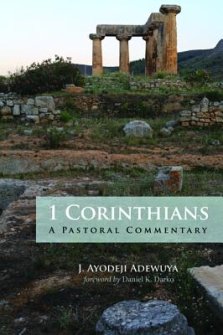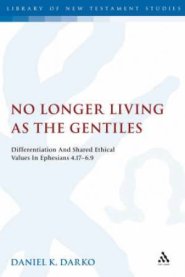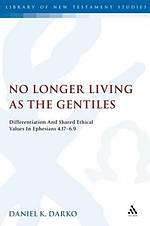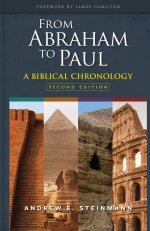An examination into the tensions found in scholarly discussions of the ethical content of Ephesians 4.17-6.9, focusing on the inclusion, exclusion or integration of the reader into society's outside world.The starting point of this work is an observed tension in recent scholarly discussion of the ethical content of Ephesians 4.17-6.9. On the one hand, Ephesians 4.17-5.21 has been interpreted as drawing a social or ethical contrast between the addressees and the outside world, and even as encouraging or legitimating social withdrawal or separation from outsiders. On the other hand, the household code in Ephesians 5.21-6.9 has been read as encouraging integration into the wider society in an attempt to curb accusations of social disruptiveness. These social goals seem to be at odds, but rarely is this reflected on or addressed in scholarship. Upon a close and detailed study that utilizes traditional exegetical methods, comparative analysis and social identity theory, this thesis argues that Ephesians 4.17-6.9 exhibits a consistent strategy of promoting group distinctiveness while utilizing Greco-Roman ethical values and traditions to promote internal cohesion among the readers.
In Ephesians 4.17-5.21, the author uses a rhetoric of differentiation to distinguish his readers from outsiders yet the ethics he espouses are commonly held traditions and moral values.The household code in Ephesians 5.21-6.9, which is grammatically and conceptually linked to the preceding ethical instruction (4.17-5.21), transforms conventional household morality into group-specific ethics to enhance mutuality among the readers in their households. Thus, the readers are encouraged neither to separate from society nor to integrate further into it, but to live and function within society as members of the 'household of God' in one accord.
Formerly the "Journal for the Study of the New Testament Supplement", a book series that explores the many aspects of New Testament study including historical perspectives, social-scientific and literary theory, and theological, cultural and contextual approaches. "The Early Christianity in Context" series, a part of JSNTS, examines the birth and development of early Christianity up to the end of the third century CE. The series places Christianity in its social, cultural, political and economic context."European Seminar on Christian Origins and Journal for the Study of the Historical Jesus Supplement" are also part of JSNTS.
Trustpilot











